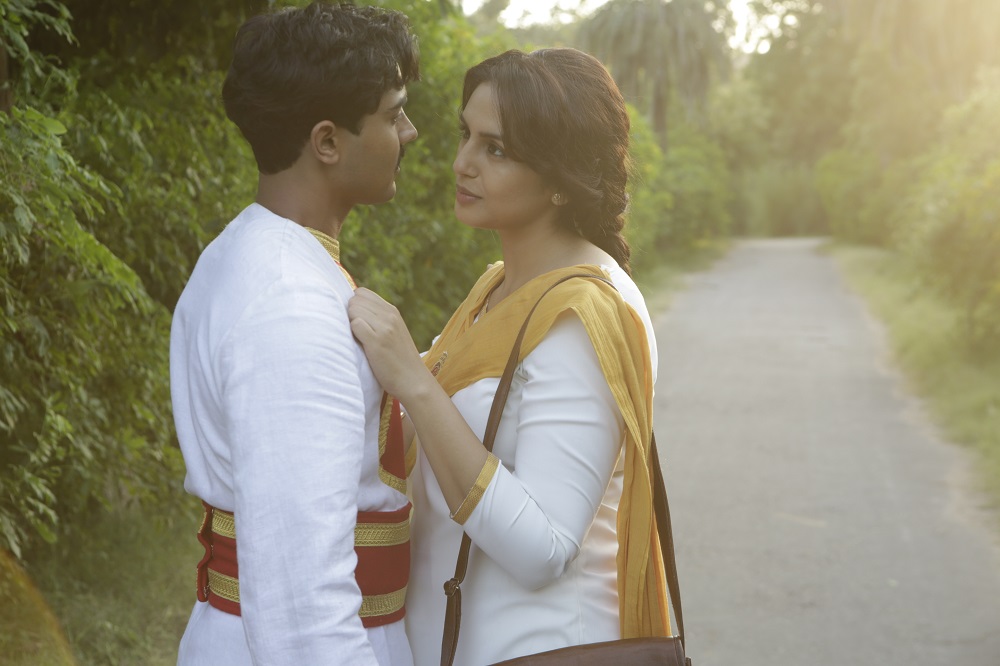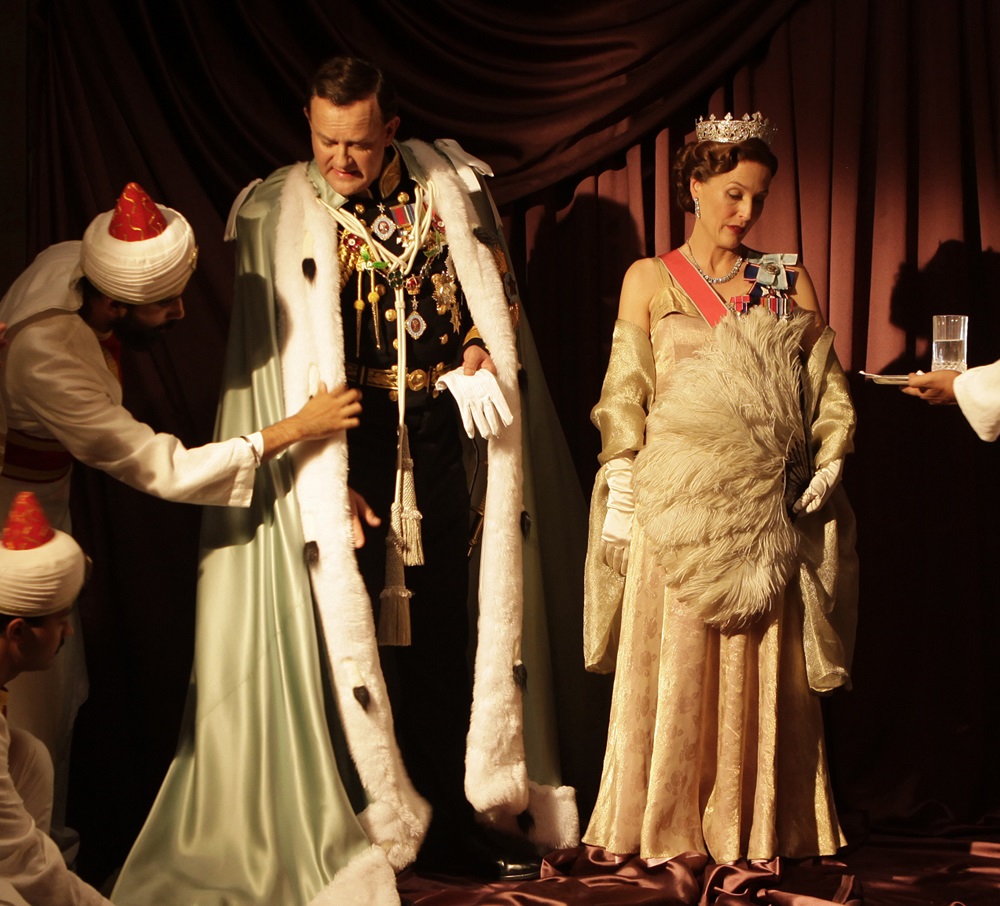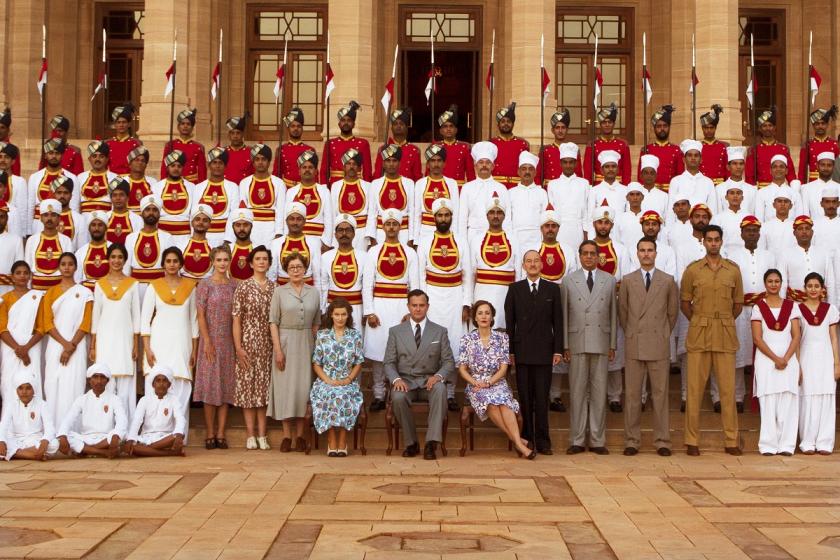The Partition of India is vast and unexplored terrain in modern cinema. It triggered the migration of 14 million people: Muslims moved from an India reduced in size overnight to the new homeland of Pakistan, and non-Muslims made the opposite journey. It was what we’ve seen in Syria but multiplied by sheer volume of numbers, and squeezed into a much smaller timeframe. The border squiggled on the map was arbitrary and conjured up in haste. So a film about this seismic subcontinental shift is long overdue. It has fallen to Gurinder Chadha, a British filmmaker of Indian origin brought up in Kenya, to try to squeeze a huge canvas onto the screen.
Rather than fan out across India in the manner of David Lean’s A Passage to India or Richard Attenborough’s Gandhi, Viceroy’s House confines itself of the official residence of the man who oversaw the transition to independence in 1947. Lord Louis Mountbatten – Dickie to his wife Edwina and other assorted intimates – assumes the genial form of Hugh Bonneville, who has had quite a lot of practice at being nice to the servants as they dress him up in silly outfits. His thankless task is to oversee discussions among the leading figures in India’s political landscape - Nehru, Jinnah and Gandhi. Meanwhile his own cohort of governors report trouble in the regions, internecine massacres which the departing British no longer have the manpower to prevent. For budgetary reasons these larger events happen off camera or in newsreels, but the house itself is not cut off from the wider context. The liveried servants, the staff in the kitchen, the guards all have an urgent need to know what’s happening in the negotiations. Some yearn for an independent Muslim state, others are passionate for India to remain whole. Thus there’s a good deal of listening at keyholes and through cracks in doors.Chadha’s script, written with Paul Mayeda Berges, dramatises a nation’s agony in a story of thwarted love between two members of staff. Jeet Kumar, who is Hindu, falls for Aalia (Manish Dayal and Huma Qureshi, pictured above), the daughter of a former Muslim political prisoner (Om Puri). The problem is that Aalia is betrothed to one of her own, a soldier who hasn’t returned from the war. In the palace compound where they live tensions rise between communities, until the Muslim housing is torched.
For budgetary reasons these larger events happen off camera or in newsreels, but the house itself is not cut off from the wider context. The liveried servants, the staff in the kitchen, the guards all have an urgent need to know what’s happening in the negotiations. Some yearn for an independent Muslim state, others are passionate for India to remain whole. Thus there’s a good deal of listening at keyholes and through cracks in doors.Chadha’s script, written with Paul Mayeda Berges, dramatises a nation’s agony in a story of thwarted love between two members of staff. Jeet Kumar, who is Hindu, falls for Aalia (Manish Dayal and Huma Qureshi, pictured above), the daughter of a former Muslim political prisoner (Om Puri). The problem is that Aalia is betrothed to one of her own, a soldier who hasn’t returned from the war. In the palace compound where they live tensions rise between communities, until the Muslim housing is torched.
 The film is very handsome to look at, and Chadha’s funny bones lay on plenty of light entertainment. But the laughs – and the sumptuous production values - feel like a sleight of hand distracting from the greater tragedy of India’s unseen agonies, which are mainly reported in dialogue between the higher-ups. Britain also gets a bit of a free pass as the architect of Partition. It falls to Michael Gambon as General Hastings Lionel Ismay, 1st Baron Ismay, KG, GCB, CH, DSO, PC, DL - "Pug" to his chums - to embody the nastier side of British realpolitik, while the Mountbatten family unit – and by implication the British establishment as a whole – is portrayed in the most flattering light.
The film is very handsome to look at, and Chadha’s funny bones lay on plenty of light entertainment. But the laughs – and the sumptuous production values - feel like a sleight of hand distracting from the greater tragedy of India’s unseen agonies, which are mainly reported in dialogue between the higher-ups. Britain also gets a bit of a free pass as the architect of Partition. It falls to Michael Gambon as General Hastings Lionel Ismay, 1st Baron Ismay, KG, GCB, CH, DSO, PC, DL - "Pug" to his chums - to embody the nastier side of British realpolitik, while the Mountbatten family unit – and by implication the British establishment as a whole – is portrayed in the most flattering light.
Because Mountbatten had only six weeks to deliver independence, there’s an artistic justification to the corresponding compression of a huge story into less than two hours. It does feel overcrowded and each narrative feels as if it would profit by expansion. In another world, and with a bigger budget, this would be a simmering 10-parter on Netflix, in which the nuances and niceties and, damn it, the political complexities might be given more air to breathe. As it is, Viceroy’s House takes its storytelling cue from Gillian Anderson’s decision to squeeze Edwina Mountbatten’s vowels into a tight space.
'I've never set foot in India in my life': watch a clip from Viceroy's House















Add comment